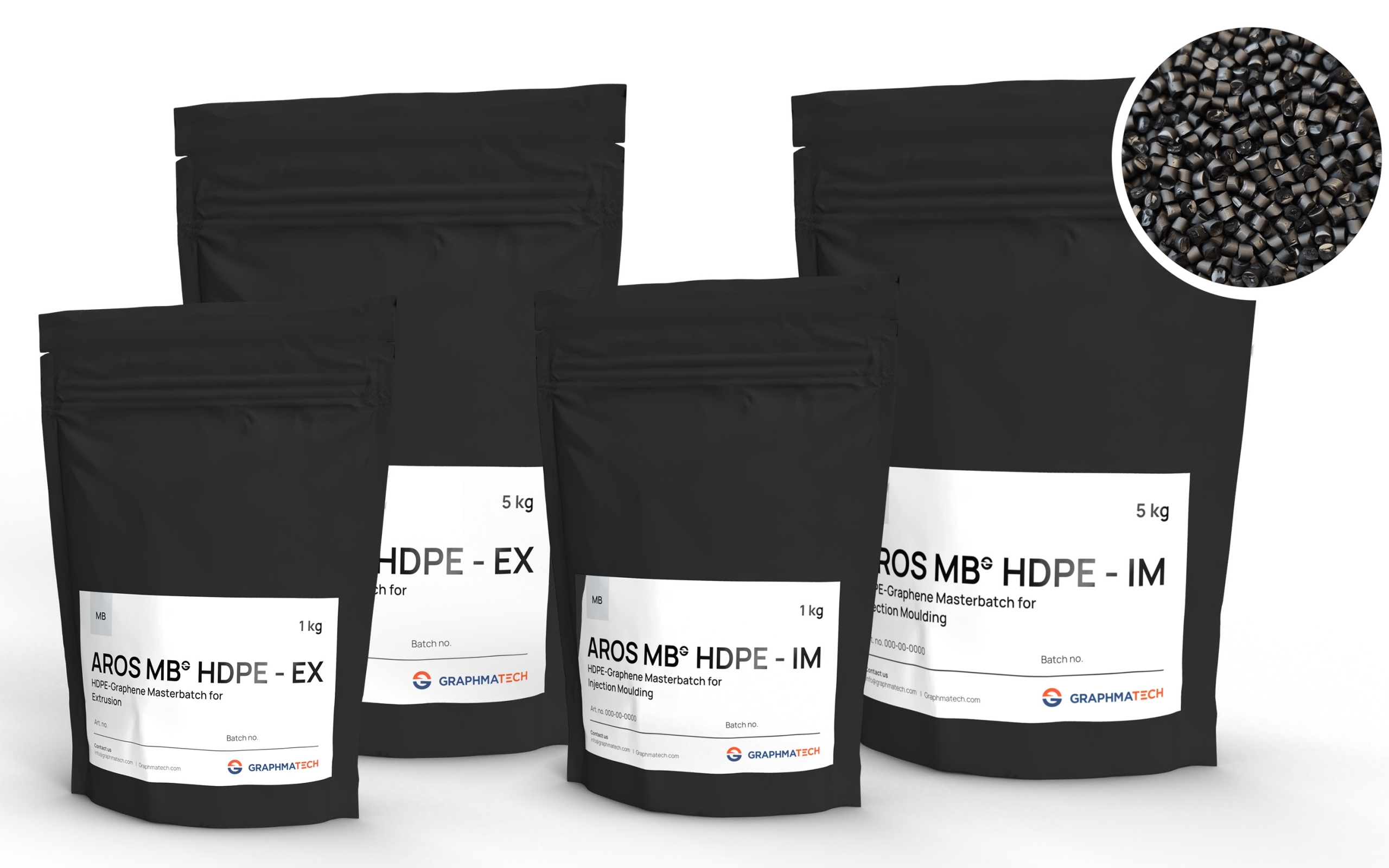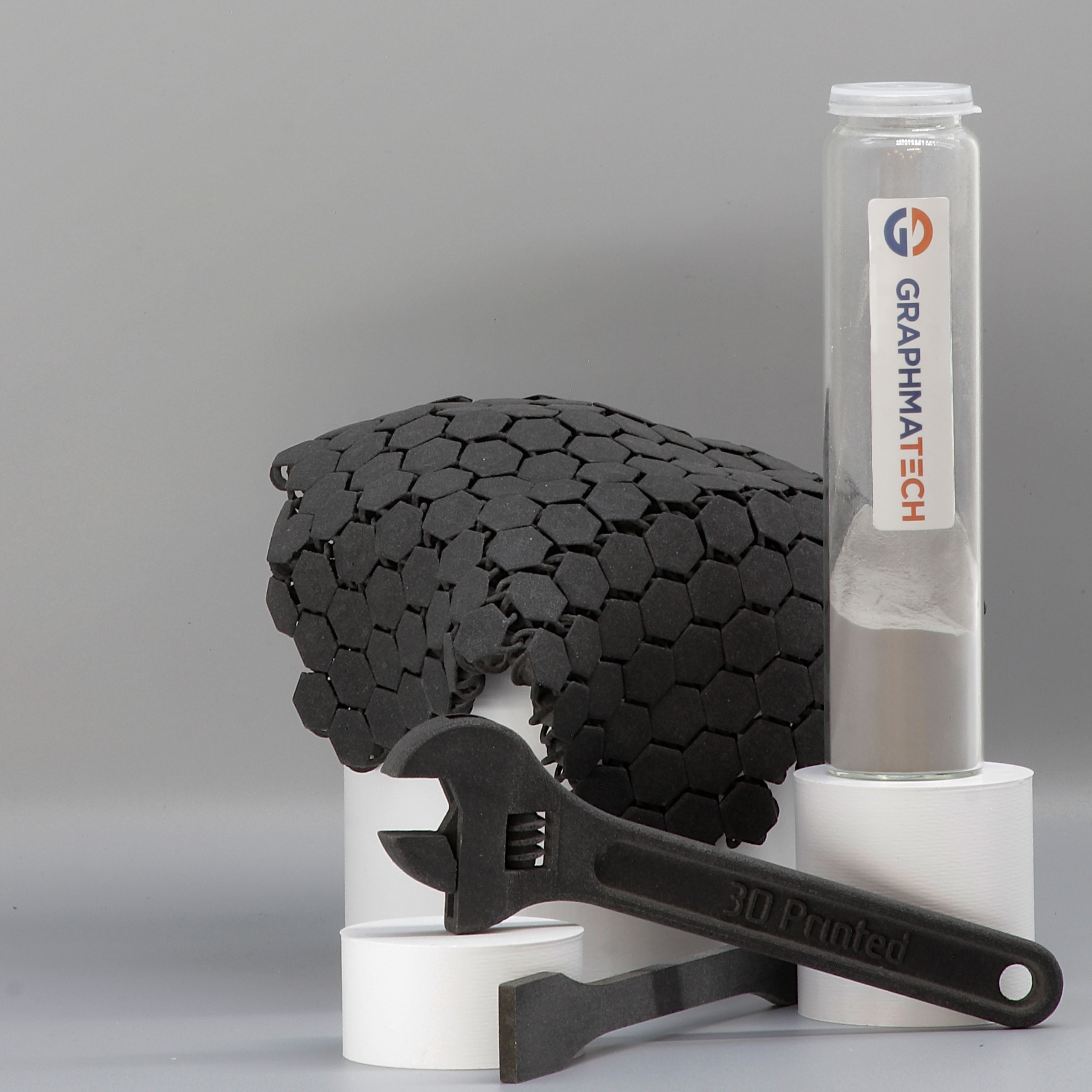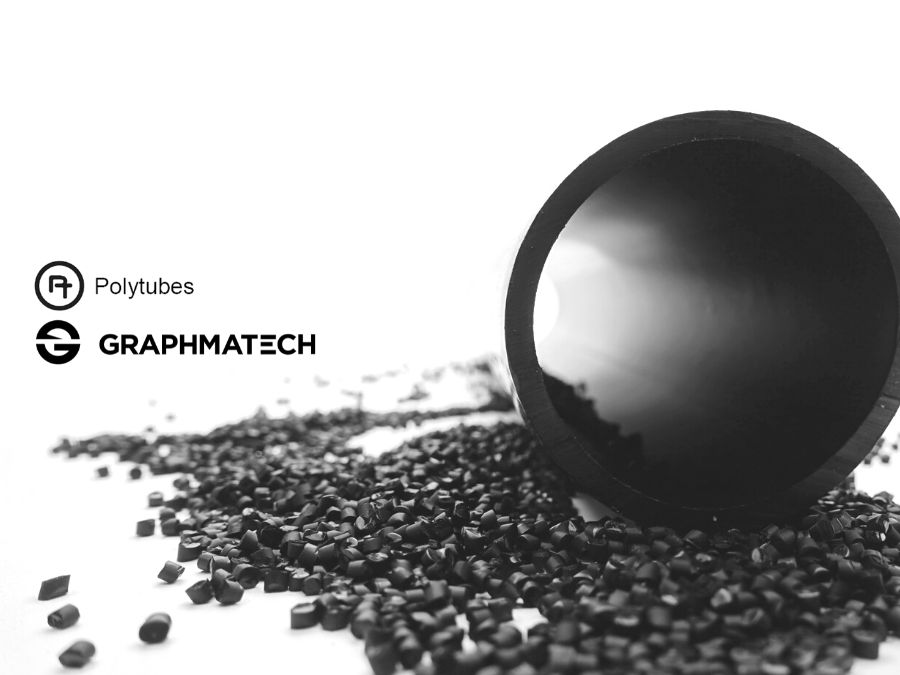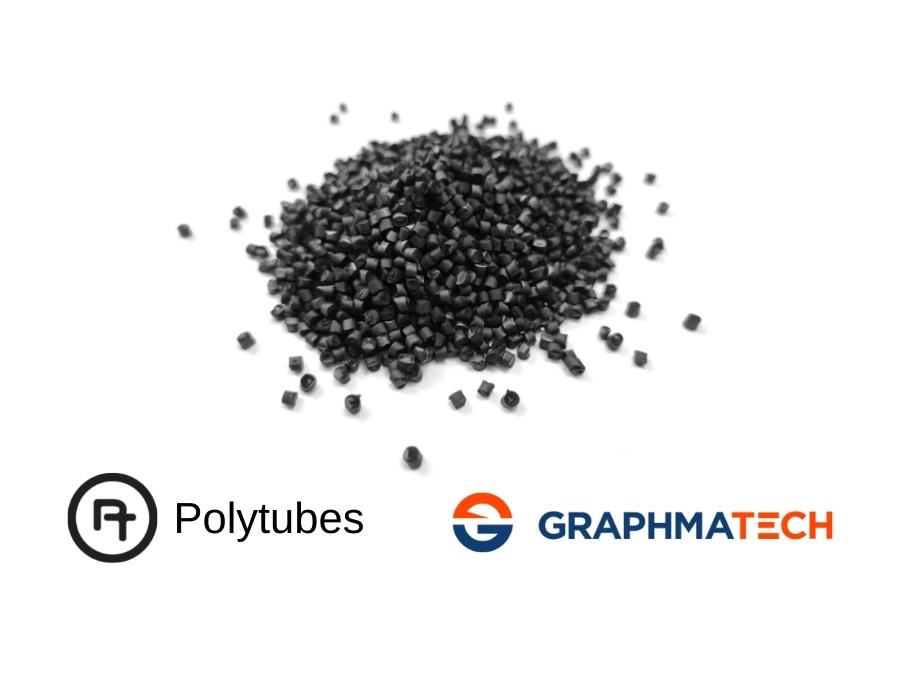
Uppsala, Sweden — Hydrogen is a key part of the transition to a sustainable future, but it poses engineering challenges; the gas molecules are very small, easily escaping through different types of materials. In addition, Hydrogen gas is stored at extreme pressure- and temperature conditions.The materials currently used in Type IV pressure vessels and pipes for storage and transportation therefore leak hydrogen into the atmosphere.
Hydrogen leakage is not only an expensive waste, but it also makes the climate problem worse; hydrogen gas has an eleven times higher global warming potential (GWP) over a 100-year time horizon than CO2 according to Atmospheric implications of increased Hydrogen use.
Graphmatech has developed and sells a graphene-enhanced, high-density polyethylene (HDPE) solution that reduces hydrogen leakage by more than 40%, among many other improvements, as shown by extensive testing. All test results depend on masterbatch loading and production method. This opens the possibility for graphene-enhanced solutions for fuel-cell vehicles and airplanes, among other applications.
“Our AROS MBTM HDPE line provides an easily accessible lane to clean mobility, and it will help the industry towards better pipes and pressure vessels. Graphmatech is proud of our growing contribution to the green transition.” says Torkel Nord Bjärneman, Business Development Manager at Graphmatech.
The AROS MBTM HDPE product line are masterbatches, suitable for extrusion, extrusion blow molding, and injection molding, now available in sample sizes of 1kg and 5kg off the shelf with technical data sheets.
For more information, contact:
Torkel Nord Bjärneman
+46 730 92 05 60
[email protected]
Graphmatech webshop: shop.graphmatech.com
About Graphmatech
Graphmatech AB delivers patented next-generation materials to support the green transition. The company is best known for its polymers for the hydrogen economy, improved metals for electrification, conductive polymers for 3D printing and graphene additives for batteries. Founded as a spinout from Uppsala University in 2017, Graphmatech is a privately held Swedish company with a diverse team spanning eight nationalities. Find out more at www.graphmatech.com.
Latest articles
- Smooth SLS Printing in Half the Processing Time
- Graphmatech and Khalifa University’s RIC2D sign MoU to collaborate in advanced graphene-engineered materials and manufacturing processes
- Solid progress in hydrogen infrastructure certification
- Blowmoulded graphene-enhanced liners now a reality for the hydrogen industry!



